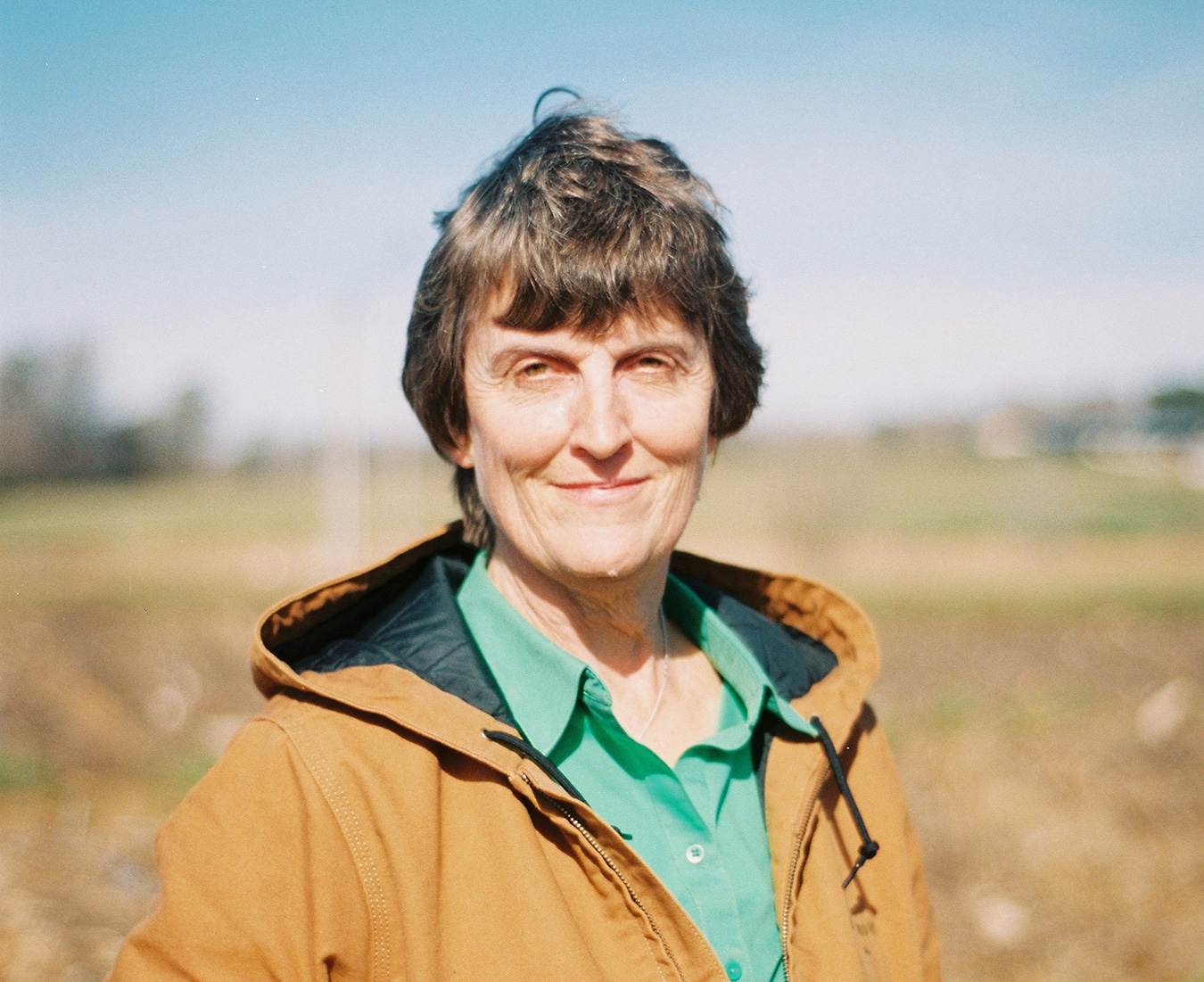From GMOs to regenerative agriculture: a scientist’s journey
Advancing Eco Agriculture’s new chief science officer Laura Kavanaugh sees regenerative agriculture as a better long-term solution than the “very narrow approach” of GMOs
It’s not often that a scientist will transition from the narrow-focused science of genetically modified crops to the natural systems approach of regenerative agriculture. But that’s what happened to Laura Kavanaugh, who worked as a scientist for biotech company Syngenta for 12 years helping to develop GMO crops. Today, she is the new chief science officer for Advancing Eco Agriculture (AEA), which works with farmers to help them transition to regenerative agriculture.
While working at Syngenta, Kavanaugh began to see the problems with the GMO approach.
“We create something as a GMO to try to overcome something in nature, but nature never sleeps,” says Kavanaugh, who has a PhD in genetics and genomics from Duke University. “There are billions of microbes, billions of everything that are eventually going to eventually crack that (GMO) code.”
She realized that the GMO approach wasn’t a good long-term solution because it produces a short-term impact.
“GMOs fundamentally drive a very, very narrow approach, and that’s not a sustainable position,” Kavanaugh says.
Further, she says that GMO science lacks the wisdom to understand its impact on nature.
Kavanaugh isn’t the first scientist to leave GMO science for more sustainable research. There have been others, such as cotton breeder Jane Dever who left Bayer Crop Science to develop organic cotton varieties at Texas A&M’s AgriLife Research and Extension Center.
DNA sequencing identifies soil organisms, assesses soil fertility
Kavanaugh saw that natural systems are the long-term solution that agriculture needs to build healthier soils.
“We really need to drive back to that for long-term food stability and long-term environmental impacts,” she says.
Kavanaugh’s research, which focused on DNA sequencing, shifted to soils and microbial support for plant, but that didn’t align with Syngenta’s direction of developing and selling patented GMO crops.
“It’s very hard for a company like Syngenta to get a product out of soil health,” she says.
Kavanaugh left Syngenta in 2020 during the Covid pandemic and founded her own company, Genome Insights, LLC to further her research on the role of soil microbes for improving crop performance. At the same time, she worked as a soil health expert at the regenerative vineyard, Union Grove Farm, in Hillsborough, North Carolina, which gave her hands-on experience at applying regenerative farming principles.
Kavanaugh’s work for Union Grove Farm allowed her to apply her DNA sequencing knowledge to regenerative agriculture.
“I was working there and learning a lot about regenerative farming,” she says. “We could do a lot of the practices and try out a lot of the things most farmers are trying to do on a shoestring budget. It was the best possible place to learn regenerative farming.”
Kavanaugh uses a handheld DNA sequencing device, which can extract the DNA from microbes and other living soil organisms, allowing her to identify the organisms and assess the fertility of soils. DNA sequencing allows farmers to track the biological life in their soil from year to year, which results from implementing regenerative agriculture practices.
“Since fostering a healthy plant and soil microbe interaction is central to regenerative farming, it is important that farmers understand how their management practices impact soil microbes,” Kavanaugh says.
Developing a scientific basis for regenerative agriculture
Earlier this year, Kavanaugh met John Kempf, founder of Advancing Eco Agriculture at a RegenOrganic conference where she was a speaker. They later spoke by phone and “we totally geeked out,” Kavanaugh says.
The two saw great possibilities working together so Kavanaugh was recently hired as chief science officer at AEA.
“Dr. Kavanaugh is an exceptional plant scientist who will help us explore and prove the power and hope of regenerative agriculture,” Kempf says. “I was able to hear her speak at the RegenOrganic Conference and was immediately impressed by how she was applying DNA sequencing technologies to assess soil fertility.”
Kavanaugh is excited about the opportunity to apply her scientific knowledge including DNA sequencing with AEA’s “boots on the ground” experience working with farmers.
“They have such a deep knowledge of regenerative farming and actual practical experience,” she says. “I got excited about the possibilities of combining all of that knowledge and what we could create for regenerative farming at large and just really develop a very sound scientific basis for it.”
In her new role, Dr. Kavanaugh will lead all science, research, and development for AEA. This includes gathering, organization, and assessment of current science, and developing a strategy for future research and development. Kavanaugh’s focus will be how DNA sequencing and other advanced technologies can be used to demonstrate the power of the plant-microbe interactions that are already functioning within natural systems—and which are at the heart of regenerative agriculture.
Regenerative agriculture: a fundamental paradigm shift
How would Kavanaugh define regenerative agriculture? “It’s a fundamental shift in our paradigm that we’re moving into a recognition of the power of living biology in the soil and inside of the plants themselves,” she says.
She says nature has “a highly effective system that already has the capability to not only grow food, but thrive and be highly resilient to all these environmental changes. It’s already there, and we have to learn how to work with it in an optimal way.”
Ultimately, Kavanaugh’s goal is to advance regenerative agriculture and bring scientific rigor to it.
“One of the best ways I could do that is to drive the success of AEA and make them more impactful by increasing the research and the data they have and combine that with what their consultants already know. That is going to be a powerful combination to advance,” she says.









